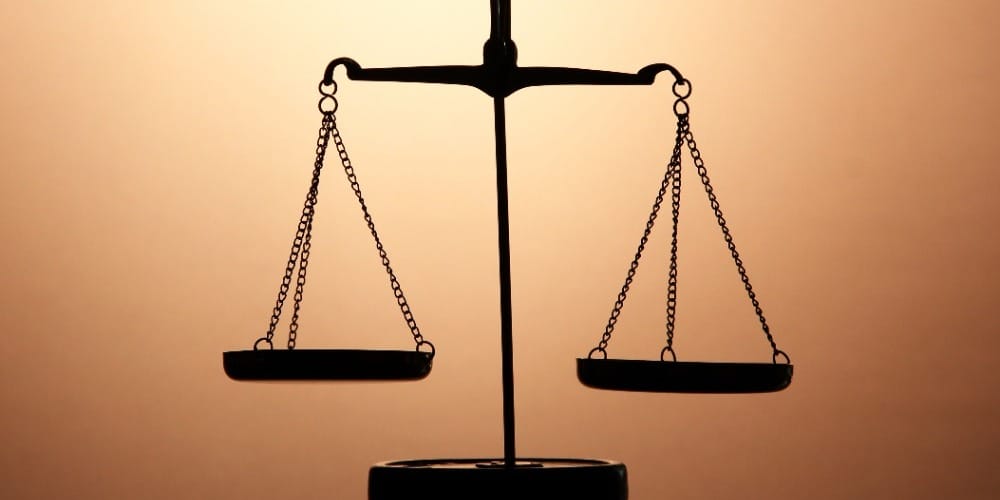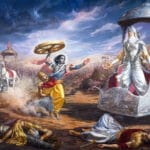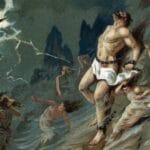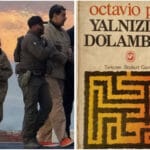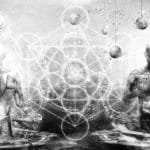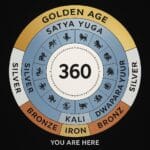The Great Seljuk Sultan Tuğrul Bey conquered Hamadan in 1050 and entered the city magnificently. At the entrance of Hamadan, when he saw the city’s two great sheikhs, Baba Tahir and Baba Cafer, he dismounted his horse and as a sign of his respect to them, kissed their hands. Baba Tahir asked him, “O Sultan! What do you intend to do with God’s servants?” Tuğrul Bey replied, “What do you command?” The sheikh recited the verse, “Indeed, Allah commands justice and good conduct.” Tuğrul Bey then said, “That is what we have done and what we are going to do.”
This is what a believer does, whether they are a sultan or a shepherd: prioritize justice and good conduct.
Throughout Islamic history, this has been the sole advice given by scholars, dervishes, and philosophers to sultans seeking counsel. Because for a believer “sovereignty,” or the state, authority, and power, are merely tools to uphold justice and goodness. Therefore, if the state deviates from justice or society from goodness, the rulers are held accountable, and allegiance is revoked. A tyrant sultan who abandons justice and becomes a ruler of only some people instead of all, loses legitimacy. In our tradition, the wisdom behind sayings that mistakenly thought as sanctification of the state—such as “the caliph is the shadow of God on Earth” (zillullahi fi’l-arz) and “may God preserve the state”—lies in this principle. These expressions signify not the current reality but the ideal that should be. The state, sultan, or caliph should be like God or the sun. Their laws, commands, light, heat, mercy, and wrath must be applied equally to everyone, and if they were to resort to discrimination, they would be worthy of destruction. In other words, the state is not legitimate and right in any case. It is only legitimized by the measure of justice. In this sense, the much desired or feared ‘İslamic state’ is contrary to Islam because the Islam stipulates politics, administrators, that is, the state, to obey only justice. Because religion, that is, divine mercy, which eliminates the relations of servitude to others, can only be embodied together with justice. An unfair world is a world where people are forced to be servants to others. And the ordinary masses can be protected from the domination of those in power only by a just state that protects and looks after them. In this sense, for example, any just state or government is an Islamic state. The power that should belong to everyone and that has been concentrated by taking it from everyone can only be distributed equally to everyone by being disciplined with justice. The religion, faith, necessity and legitimacy measure of the state (sovereignty) is only justice.
Islam invites people to purify themselves from thousands of years of pagan/idolatrous relationships and habits and return to their essence, their external and internal nature. This is emancipation in the modern sense. The order of servitude to others is based on material and spiritual dependencies on the other powers along with Allah. People worship power voluntarily, either through force or because it is easy for them to do so. Wars, hunger, famine and fear of death force people to the lives they do not want. However, after a while, these obligations adopted for the sake of a safe life turn into convictions. To worship anyone other than Allah is this condemnation. And Islam takes human out of this pit they have fallen into and makes them the master of their own destiny, whether he is rich or poor, slave or master, black or white. “La ilahe illallah” is principle of liberation. With this principle, Islam calls for the salvation of those in power to be free from being oppressors and the powerless masses to be free from domination and slavery. For this reason, for those who truly believe in Allah and the hereafter, both the blessings of this world and the unbearable pains of life are merely means of humanization and liberation, that is, means of testing. A believer who looks at the world and its contents with this perspective has completed his humanization. In this sense, Islam truly liberates and humanizes individuals and societies.
All the peoples acquainted with the message of monotheism have thus earned an honorable place in the history. They established great civilizations and contributed to shared human prosperity. The barbaric societies of the pagan/polytheist ages were disciplined by the mercy of divine religions and today, thanks to many principles and moral principles that are considered common values of humanity, even if only nominally, these societies have a meaningful place in the stage of history. Muslim communities, notably Arabs, Iranians, Kurds, and Turks, emerged into history thanks to Islam. Their pre-Islamic histories are marked by barbarism and primitive ignorance.
As religion and the state fulfilled their primary missions throughout history, they served a necessary and beneficial function for people, and as they deviated from this mission, they turned into instruments of oppression that dominated people. Therefore, both religion and the state must have safeguards to prevent deviations from their essential missions. These safeguards are represented by wise individuals, opinion leaders, social groups, established families, clans, or enlightened individuals who embody the historical memory, tradition, and conscience of societies.
Modernization and westernization efforts have destroyed these social safeguards, along with many other positive and negative effects in our country and region, as well as all over the world. Many societies that for better or worse, live in their own world, have experienced trauma during the processes of change into which they were forced, lost their social balance, and had to substitute innovations that did not belong to them. Most importantly, every society has had to break away from its past, abandon many of its habits, and lose its memory, floundering in a void that can be called mass amnesia. These tragic consequences of Westernization are more noticeable today, because the world has become sufficiently Westernized and has nowhere left to go.
The ideological vacuum that emerged globally after the Cold War fostered a peculiar nihilism and created a dramatic void. The fake contradictions based on ethnicity, religion and sect, geopolitical conflicts between superpowers, tedious and meaningless competitions between nation-states dating back to the 20th century have exhausted humanity, and the standardizing culture, art and ideas produced by the West have lost their effect and importance other than being entertainment material. Now, every society is in search of returning to itself by renewing its memory and healing the wounds left from the trauma of modernity. Behind everything that is happening in the world and in our country today are not only political reasons, but also this deep search.
A wise saying states, “For one who knows where they are going, all roads will open.” This knowing is not a simple piece of information or preference but an intuitive and faithful state. For a society or individual, knowing one’s path and direction means knowing one’s destiny. In certain periods of history, after great wars, migrations, or crises that cause upheavals, societies are forced to choose among more ancient and universal paths and directions. States that can sense these moments of change and take forward steps on behalf of society to open a way become true states. Political entities that cannot do this become satellites of states that can do this or fall under their mandate.
Türkiye is about to complete its the 20th century and the Cold War, in which it has wavered between implicit mandate relations with the West and the desire for complete independency. Despite all the suffering and pressures endured, a vein within society has preserved its memory and values, bringing them to the stage to build the future. Now, the state faces a significant test: responding to these deep, healing societal reflexes and undergoing a transformation aligned with them.
The habits of the old regime, which engaged in deception throughout the 20th century regarding to the West, fought religion in the name of survival and disrupted peace and order, closed the state to a section of its people and destroyed justice, provoked society into civil wars and opened the way for the traps of the West, are now being thrown away by the nation. This dirty past was a nightmare that cannot be repeated, and now it is really necessary to completely change the paradigm and draw a more appropriate path and direction. Türkiye’s problem is not economic or political, but the state problem that underlies economic and political problems. The problem of having a real state that does not rely on any religious, ethnic or sectarian group, that belongs to everyone and that has no other measure than justice.
Islam is the guardian of freedom, and the state is the guardian of justice. The unity of these two entities has rendered meaningless concepts imported from the West such as religiosity, irreligiosity, theocracy, materialism, positivism, secularism, etc., which have no equivalent in our discourse, and the new path chosen by the nation requires us to look at the world, objects, and events with a completely different paradigm. It is necessary to eliminate and forget, in a state of conscious amnesia, a bunch of Western concepts, formulas and political and social nonsense imposed on us, and make room for what is truly new. Philosophy is said to be “thinking about what has not been thought.” Real politics, then, is doing what has not been done. The nation, through its actions and choices, has given the state an opportunity to become a true state. For this reason, the sole task of politics is to make a historical move with a revolutionary spirit worthy of the nation.
In these lands, problems never cease. Undesired events in our vicinity never come to an end. Contradictions between different beliefs and lifestyles within society are never exhausted. The state is obligated to manage these unending challenges, to transfer strength to society with justice in every situation, and to find ways out together. In this case, believers liberated by Islam, remind the state of the values they protect, thus updating their mission of being the safeguards of the existence and permanence of religion and the state (dinüdevlet).
The pain is labor pain. And “La İlahe İllallah”, that is, teology of freedom, is the mother of existence and permanence, the state of justice, the rule of law, development, progress, prosperity and peace.
